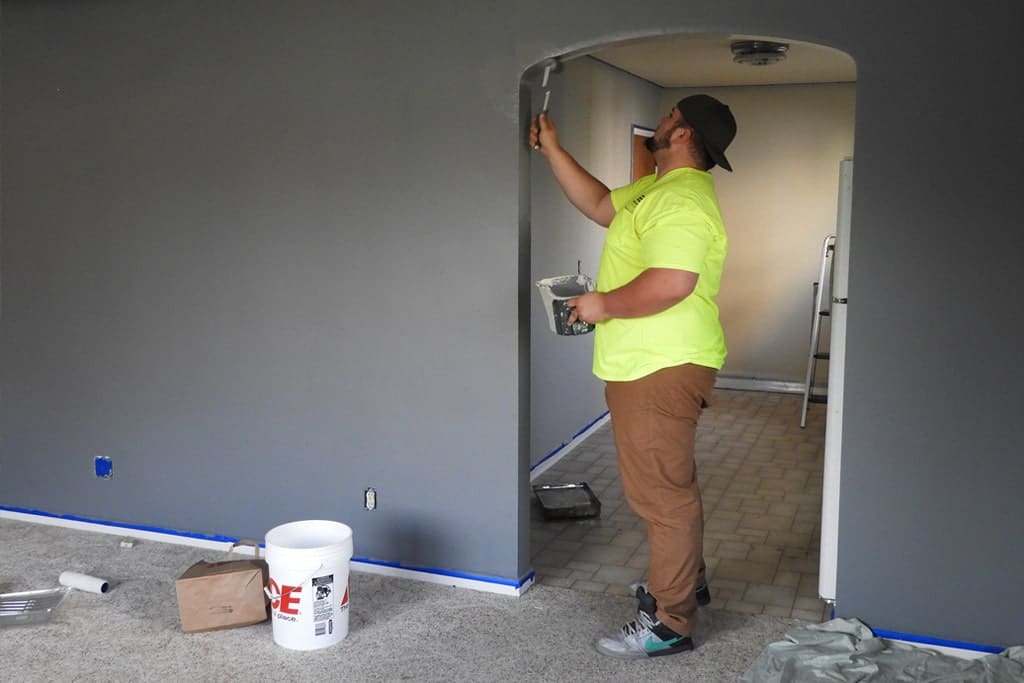NZ’s new building consent exemptions – Time for a renovation loan?

– NZ’s new Building Consent Exemptions begin on August 31 2020 –
In March 2020 New Zealand’s Labour Government announced an update to New Zealand’s Building Code would be made and come into effect on 31 August of the same year. This update meant that new types of construction would be added to the list of building consent exemptions in Schedule 1 of the Building Act. Early estimates forecast big savings for NZ’s homeowners (up to $18 Million per year) and a dramatic reduction in the number of consent applications being lodged with local councils around the country (a reduction of approx. nine thousand).
Professional builders and DIY enthusiasts were thrilled with the announcement since they could now move ahead with projects without enduring lengthy and frustrating waits for consents. The effect would be savings of time and money for all involved, and not a reduction of quality of work as some initially feared, since the same building code standards would still have to be met.
Added to the list of consent exemptions are projects including sleepouts, carports, sheds, solar-panels (ground-based) and outdoor fireplaces. Which leads us to the question, is it worth borrowing money to fund these sort of low-risk projects?
Is it a good idea to borrow to undertake home renovations?
Making improvements to your home, besides making it a nicer place to live, has the additional benefit of increasing the capital value of your main investment. Anyone who has watched a home ‘flipping’ tv show will know that there are low-hanging fruit when it comes to quickly increasing the resale value of a property – certain things that reap big rewards for minimal time and money invested (for example, a refurbished deck). If you do want to sell up, the trick is to not sink money into things that won’t necessarily add value, such as undertaking the expensive work of removing walls to create open plan spaces that not all buyers are necessarily as crazy about as you.
The types of projects that add value are new cladding, kitchen improvements such as new benchtops and appliances, new windows (thing double glazing), renovated bathrooms, and energy-saving upgrades, to name just a few. On the other hand, if you don’t plan on ever selling, then quality-of-life renovations are the primary concern and your personal preferences become the only thing that matters (and how much these might cost of course!)
The new consent exemption open up a number of possibilities when it comes to home improvements. We’ve put together a list of benefits to be gained from undertaking such a project, and reasons that come together to help justify taking out a manageable short-term loan to make the dream a reality:
- Enhanced Quality of Life & Financial Savings – As we’ve already mentioned, a renovation can make your living situation much much better. For example, a new carport might create a place to finally get your car under cover and protect it from the elements – no more scraping frost off on a winter morning. A shed could mean a place to store firewood for the winter months, breaking off your dependence on the heat pump and opening up the possibility of sourcing wood on the cheap to then enjoy big savings on the power bill.
- Rental Income Potential – A new sleep out could be a way to take on a paying tenant and provide a good stream of income. This income could initially be used to pay back the renovation loan that made it possible, and go on to provide financial independence in the future.
- Privacy – You might borrow to purchase trellis panels or quick-growing plants for hedging to block out your nosey neighbours! Landscaping your yard in a planned way can greatly increase its attractiveness at the same time as creating some lovely privacy.
- Home-grown veges – One of the new exemptions are greenhouse structures up to a maximum of 30m2. These can be built at relatively low cost by visiting recycled building materials yards and keeping an eye out on the local trade and exchange listings. You’ll make your money back on the build in the medium-term by the huge savings you’ll be making by not having to be rorted on vegetable prices by the chain supermarkets.
Fewer Obstacles
With the new exemptions giving you confidence and impetus to get started, financial constraints may be the only thing left standing in your way. Alternate Finance are about giving you a fair go, and we’ll do everything we can in a fair and non-judgemental way to gauge whether you qualify for a personal renovation loan.
If you’re looking to upsize and move on to a bigger and better place, or you’re at the other end of the spectrum and ready to downsize because you can’t manage what you’ve got, a reno loan could be just the ticket to help you kick ahead and get busy enjoying a new and improved lifestyle. Or, if you’re happy to ‘love it rather than list it’, a reno loan can make your home just that little bit more comfortable and enjoyable.
The New Exemptions
Single-storey detached buildings
You no longer need a building consent for sheds, sleepouts, greenhouses and other similar structures. However, this doesn’t include bathroom or kitchen work and, as before, any electrical work will need to be done by a registered electrician and any plumbing work still needs a consent.
The key factor is whether your plan does not exceed a maximum floor area of 30 square metres. If it is under this limitation, then your build must meet at least one of these 3 requirements:
- It’s a kitset or prefabricated building that has had its design done or reviewed by a Chartered Professional Engineer.
- It’s a building which will have its design and construction supervised by a Licensed Building Practitioner.
- It’s a building with structural components made from only lightweight materials and built in compliance with the Building Code (B1/AS1).
Carports, Awnings, Verandas and Porches
Under the new exemptions, you can build a carport (up to 40m2), ground-floor awning (up to 30m2), and ground-floor veranda or porch (up to 30m2) without a building consent provided that:
- The design has been done or reviewed by a Chartered Professional Engineer, or
- The design and construction has been done or supervised by a Licensed Building Practitioner.
Outdoor Fireplaces or Ovens
From 31 August 2020, you are now also exempted from obtaining a building consent for building a permanent outdoor fireplace or over built to a max. Height of 2.5 metres, and with a maximum surface for cooking of 1m2. These projects are also subject with fire restrictions in your area (check with your council/local government) and must be at least 1m away from any building or property boundary.
Other Exemptions
Also included in the new exemptions are flexible water storage bladders, ground-mounted solar panel arrays (with zone-specific size guidelines), small pipe supporting structures (water-carrying and on private land), small bridges (6m max. length), and single-storey pole sheds and haybarns in country zones (110m2 max.).
Resources
The Ministry of Business, Innovation and Employment have created a very useful guide covering all building work that is exempt (on the list of exemptions in Schedule 1 of the Building Act 2004) from needing a building consent: Exempt building work guidance. Follow the link to ready about:
- General alterations, maintenance and removal
- Detached, standalone buildings
- Windows, doors and walls
- Plumbing and drainage
- Insulation and moisture barriers
- Porches, verandas and pergolas
- Platforms, decks and bridges
- Shelters, shades and carports
- Fencing and restrictions
- Playground equipment
- Pools, tanks and dams
- Signage
- Support structures
- Other structures
- Network utilities
Apply online now and we’ll go ahead with processing your loan to help get your home renovations underway.


